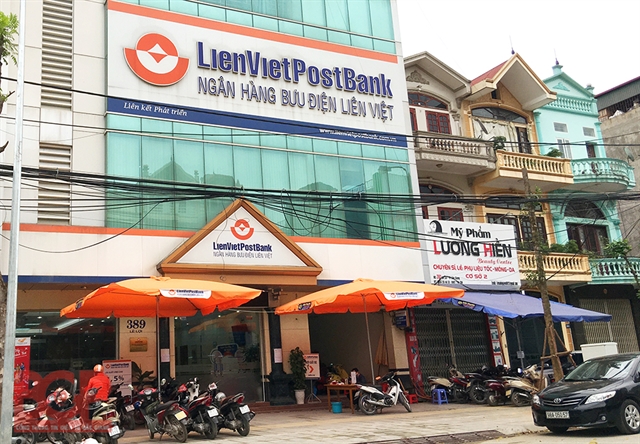
HÀ NỘI – Many State-owned enterprises have announced their auction schedule for capital divestment plans, but not all of them are attracting customers.
Among the 122 million shares of Liên Việt Post Commercial Joint Stock Bank (LienVietPostBank or LPB) brought to auction by the Vietnam Post on HNX recently, only 800 shares were registered for purchase by a few individual investors.
With a starting price of up to VNĐ28,930 per share (US$1.27), which is nearly 15 per cent higher than LPB’s market price, the auction attracted few buyers. LPB shares received attention for a few sessions after the information about the auction was officially announced, but quickly stagnated due to weak cash flow.
The recent auction of 35 million shares of Bình Dương Trade And Development JSC (TDC) with a starting price of VNĐ27,900 per share was also regarded as a failure as only 50,000 shares were sold to four individual investors.
On auction day, TDC’s market price was 10 per cent lower than the starting price of the auction, not to mention the time for the shares to be sent to the account took up to a month or even a few months, making investors displeased.
The auction of the capital portion of the State Capital Investment Corporation (SCIC) at Châu Đức Urban Development and Construction Joint Stock Company was also recently cancelled due to no investors participating.
NTP stock of Tiền Phong Plastic JSC has reached a price of approximately VNĐ70,000 per share at the end of January 2021 after SCIC announced a plan to divest capital in February, but the divestment has not yet been confirmed and NTP shares have dropped 10 per cent from its market price.
Similarly, BMI shares of Bảo Minh Corporation also touched VNĐ45,800 per share, but now are trading around VNĐ38,000 per share.
At the end of last week, some investors registered to buy shares of HUD1 Investment and Construction JSC (HUD1) without carefully considering the health of this business. Interested investors must register to buy the whole lot with a starting price of VNĐ75 billion, equivalent to the market price of HUD1 being traded on the floor.
Bad debts, member enterprises that have ceased operations, and suspended projects are the three most obvious disadvantages in this enterprise. In the 2017-2020 period, the debt/total assets and debt/equity ratios of HUD1 continuously increased, reaching nearly 96 per cent and 582 per cent in 2020.
The investment in HUD 1.02 Investment and Construction Joint Stock Company (VNĐ12.75 trillion) and the investment in CIC DECOR Architecture and Construction Joint Stock Company (VNĐ1 billion) have not brought about profits, causing HUD1 to make a provision for risks of VNĐ4.43 billion.
Currently, both of these units are temporarily suspending production and business activities, so the ability to recover capital at these enterprises has not been determined.
The long-term capital contribution investment with Đại Thiên Lộc Company of VNĐ13 billion to implement the Liên Bão-Bắc Ninh project which has lasted since 2011 also faces potential risks in terms of investment. VnExpress News
- Reduce Hair Loss with PURA D’OR Gold Label Shampoo
- Castor Oil Has Made a “Huge” Difference With Hair and Brow Growth
- Excessive hair loss in men: Signs of illness that cannot be subjective
- Dịch Vụ SEO Website ở Los Angeles, CA: đưa trang web doanh nghiệp bạn lên top Google
- Nails Salon Sierra Madre
 VnExpress News The News Gateway of Vietnam
VnExpress News The News Gateway of Vietnam




